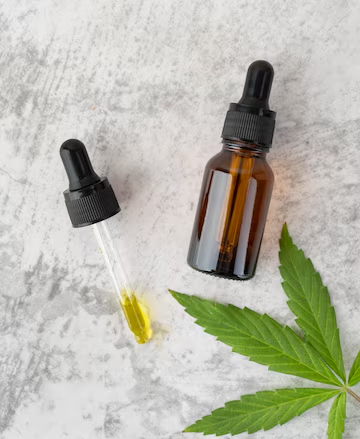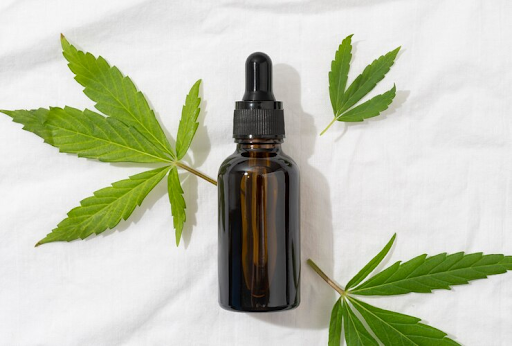When it comes to cannabis products, differentiating between THC oil quality is a must if you want to have both an enjoyable and safe experience. This piece provides a comprehensive overview of what to look for in the top-quality THC oil market.
Knowledge of these signs can enable consumers to make rational choices when purchasing THC oil products, either for medicinal or recreational use. From purity and potency to extraction methods, testing standards, and transparency of ingredients, among others, each element has a significant role in determining the overall quality and efficacy of these oils.
By putting these indicators first, purchasers can confidently move through various types of THC oil commodities, thereby ensuring they purchase those that are safe, work as expected, and give pleasure on their side.
7 Signs Of Best Quality THC Oil You Should See
Extraction method
The quality of THC oil is highly affected by the extraction technique. Advanced methods like CO2 extraction and ethanol extraction are usually used to extract quality THC oil. These are preferred because they do not interfere with the integrity of the plant’s cannabinoids and terpenes and ensure their efficient removal from the plant. For instance, CO2 extraction uses carbon dioxide under high pressure for the extraction of terpenes and cannabinoids, leaving behind a cleaner and more potent oil with fewer residual solvents.
Additionally, ethanol extraction is recognized for removing a wide range of compounds while keeping up with the plant’s natural profile. Products obtained through these methods undergo intensive purification procedures to eliminate impurities, hence maintaining high-quality THC oils that treat effectively as before.

Purity
THC oil quality greatly depends on the purity. Among the impurities absent in good oils are residual solvents, pesticides, heavy metals, and microbial contaminants. Filtration, winterization, and distillation are some of the techniques applied by manufacturers of THC to achieve purity. Filtration removes particles and undesired substances, while fats and waxes are removed by winterization through solvent-based extraction & chilling as well as filtration.
Third-party lab testing confirms this, providing detailed reports about how it is composed and whether it meets safety regulations. Therefore, purity increases the efficiency and safety of THC oil; this aspect also indicates producers’ dedication to manufacturing top-notch products that meet their users’ demand for pureness and power.
Potency
The purity of THC oil means it does not contain impurities or anything harmful, making it safe for use. Pure oil is manufactured through purification processes that remove contaminants like remaining solvents, heavy metals, microbes, and pesticides. Filtration and winterization are some of the purification techniques employed to realize high purity levels. Winterization can be done by solvent extraction to eliminate impurities such as fats and waxes, followed by chilling and filtration.
When purified, THC oil retains its potency and efficacy but minimizes any possible adverse impacts from contaminants. Consumers can confirm the purity of this oil through lab-tested results to confirm compliance with safety standards and regulatory requirements.
Transparency
Transparency in THC oil products involves clear information about ingredients, manufacturing processes, and test methods provided by the manufacturer. Transparent manufacturers of quality THC oils tell us which cannabis strain was used in the production process, how cannabinoids were extracted from cannabis plants, and their terpene profile, among other things, including additives used during production like solvents.
Also, transparency is manifested when third-party lab test results confirm a company’s claims about its product’s potency and purity. By providing transparent information on product quality levels, these firms enable clients to make informed choices while shopping for marijuana products.
Testing standards
Testing standards are a vital clue as to the best THC oil around. Reliable manufacturers submit their outputs for independent third-party check-ups. These tests measure cannabinoid potency and terpene content and look for impurities such as pesticides, residual solvents, heavy metals, and microbiological contaminants. Testing also ensures that a product complies with legal limits of certain substances and safety requirements, thus ensuring the quality and safety of the customers.
Transparent brands usually offer laboratory reports or certificates of analysis (COAs) detailing results so that consumers can verify their potency level and purity before buying them. Manufacturers who strictly follow testing protocols demonstrate commitment to providing an effective and safe range of these oil products, hence building trust among consumers in this market.
Source of ingredients
The primary determinant of the quality of THC oil is where its ingredients come from. High-quality THC oil is often derived from organic cannabis plants grown sustainably. The type of raw materials used determines the final product’s cannabinoid profile, terpenes, overall efficacy, and safety levels. Companies that prioritize sourcing from suppliers with good track records on ethical business practices, mainly about transparency, have a better chance at maintaining similar levels of content in their oils across batches produced over time.
Ethical growing practices about environmental conservation are adhered to by trusted marijuana farmers and sources whose products could be considered by customers seeking sustainable consumption patterns for high-quality oils.

Packaging
When it comes to the quality of THC oil, packaging is paramount. The high-quality THC oil products are usually put in containers that help maintain their potency and freshness, such as dark glasses or simply those that block out light. In addition, these types of packing stop cannabinoids and terpenes from being degraded by exposure to sunlight, air, or moisture, thereby maintaining the product’s effectiveness and strength over time.
Furthermore, good packaging requires a label with essential information like cannabinoid content, dosage instructions, expiration date, and manufacturer details. This enables customers to choose the best quality products that meet their needs.
Closing Lines
Finding the best THC oil entails looking at extraction methods, purity levels, strength, transparency practices, qualified testing procedures, ingredient sources, and packaging. These considerations help ensure that THC oil users are at no risk of harm while using it. By considering these indices, buyers can be able to choose wisely their preferred brands of these oils either for medicinal purposes or merely recreational use.
High-quality marijuana oil companies adhere to strict standards and policies that maintain the integrity of their products and consumer confidence. As more cannabis markets develop, so does awareness about indicators of quality, which will enable customers to navigate through many options available, in particular, in various products made from THC, hence choosing most accurately the ones according to their needs and wants.
Author’s Bio
Katherine Brooks from Texas is a Senior Content Writer with 6 years of experience in health, lifestyle, and vaping. She’s great at explaining complicated vaping topics in a way that’s easy to understand and fun to read. Katherine is always learning more about vaping and writes for the website vapereviewshop.com.
She manages the perfect vape review section, where she offers detailed insights and evaluations of various vaping products, helping newcomers make informed choices. She also has a degree in Health Sciences, which helps her know a lot about the topics she writes about.
